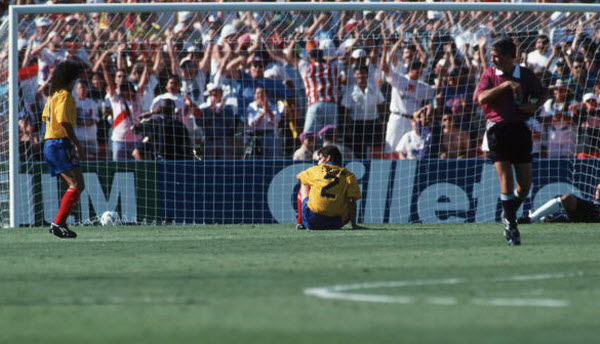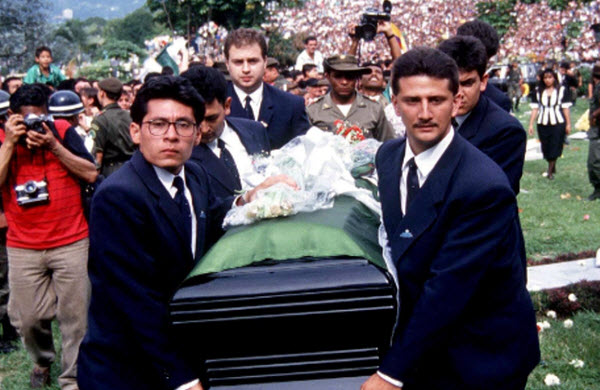Most people agree that the FIFA World Cup, which is considered the world’s most popular sport, is one of the biggest sporting events on the planet. Although it is not the most popular sport in the United States, the country successfully hosted the World Cup in 1994 for the first time. The tournament featured 24 teams from various continents competing for the championship, which was ultimately won by Brazil after a dramatic final against Italy. The match ended in a tense penalty shootout, where Italian player Roberto Baggio missed the decisive penalty, leading to significant disappointment among Italian fans. Despite this failure and the anger directed towards him, Baggio was fortunate compared to Colombian player Andrés Escobar, who was tragically murdered in a shocking incident that left many football fans in disbelief. Escobar’s death was a direct consequence of an own goal he accidentally scored, which played a major role in Colombia’s elimination from the tournament.
The 1994 World Cup began on June 17, and Andrés Escobar and his Colombian teammates started their campaign the following day as part of Group A, alongside the United States, Switzerland, and Romania. Expectations for the Colombian team were high, given their impressive performance during the qualifiers, where they lost only one of 26 matches and conceded only two goals. However, their first match in the tournament, against Romania on June 18, 1994, at the Rose Bowl in Pasadena, was disappointing. The team played sluggishly and lost 3-1. This meant that their match on June 22 against the United States was crucial for their progress, but it became clear that it was going to be a tragic day for Andrés Escobar.

In the tournament, the United States had drawn 1-1 with Switzerland in their opening match, which left Colombia at the bottom of the group standings. During the second round, the two teams faced off, with Escobar, a defender by trade, trying to prevent the opposing team from scoring rather than scoring himself. However, in the 34th minute of the first half, while the score was still 0-0, U.S. midfielder John Harkes delivered a cross from the left wing into the penalty area. In an attempt to intercept it, Escobar accidentally directed the ball into his own net, giving the United States the lead. Despite Colombia’s efforts to equalize, they failed, and the match ended 2-1. Although Colombia won their final group match against Switzerland 2-0, it was not enough to advance to the next round due to Romania’s victory over the United States.


After Colombia’s elimination from the World Cup, Andrés Escobar returned to his homeland, determined to move forward with his life despite pleas from loved ones to stay out of the public eye, as fans were still upset with him. He responded with a statement in the Colombian newspaper El Tiempo:
“Life does not end here, and we must continue no matter how difficult it is. We should not stand idly by; we have only two choices: either let anger paralyze us or overcome it and do our best to help others. It is our choice. So let us maintain respect, and warm greetings to everyone. It has been an amazing and rare experience, and we will see each other again soon because life does not end here.”
On July 1, 1994, Andrés Escobar went out with friends to spend the evening at a bar in his hometown of Medellín. They parted ways late at night, and around 3:00 a.m. on July 2, he was alone in a parking lot. A group of men approached him and argued about the unfortunate goal he had scored. The confrontation escalated into a fight, during which Escobar was shot six times and left to die. Later that night, Humberto Castro Muñoz, a bodyguard for members of a powerful drug cartel, was arrested. He confessed to the murder and was subsequently tried and sentenced to 43 years in prison. Escobar’s funeral was attended by 120,000 people, marking a grand farewell for the player whose life was taken over a mistake he did not intend.

After serving only 11 years in prison, Muñoz was released, and many believe that the Galán Henao brothers, leaders of the drug cartel, ordered Muñoz to kill Escobar. Unfortunately, there was insufficient evidence to convict them. In honor of Andrés Escobar, a statue was erected in Medellín to commemorate the player who paid the ultimate price for an unintended error in the World Cup.
